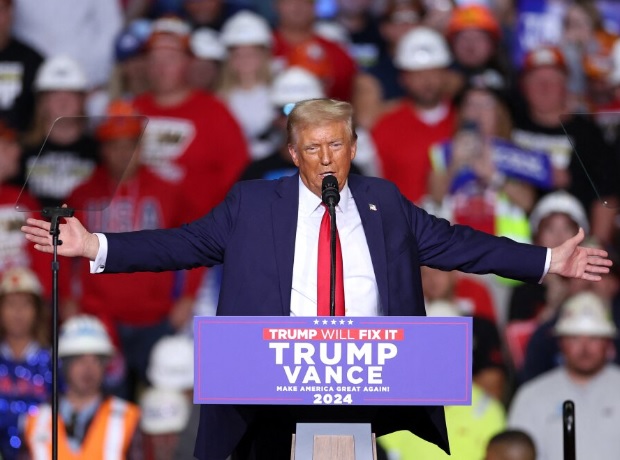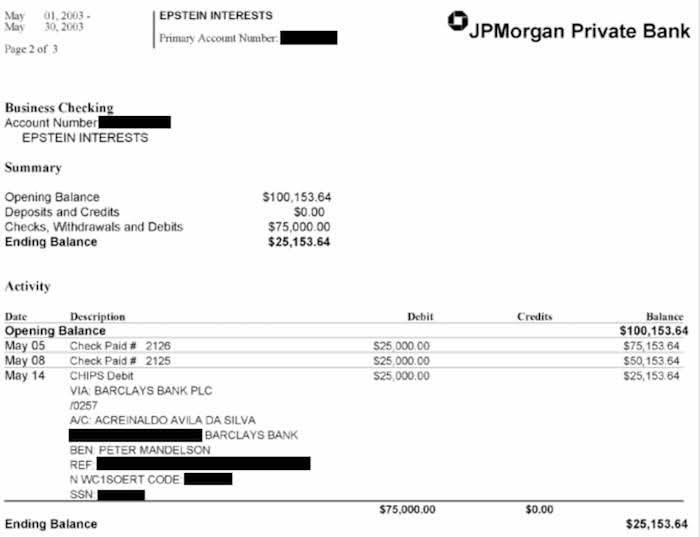Politics
Donald Trump wins historic return to the White House

Donald Trump has been elected the 47th President of the United States, securing a remarkable return to power after his first term’s turbulent end. His victory caps a four-year journey marred by controversies, including a refusal to concede his prior defeat, a violent Capitol insurrection, felony convictions, and surviving two assassination attempts.
Trump clinched the presidency by winning Wisconsin, reaching the required 270 electoral votes. His combative approach resonated deeply with his base, fueling support with a fierce campaign against his Democratic opponent, Kamala Harris, whom he attacked in intensely personal terms. Trump’s rhetoric painted an apocalyptic vision of America, claiming it was overrun by violent migrants and dominated by social chaos. This stance found a strong following, particularly among men, in an increasingly polarized nation.
“Unprecedented mandate”
In a victory speech Wednesday morning, Trump proclaimed an “unprecedented and powerful mandate” from voters. The election season proved historically contentious, marked by Trump’s survival of two assassination attempts and the sudden replacement of Joe Biden with Kamala Harris as the Democratic nominee. Harris, the first woman of color to lead a major party’s ticket, struggled to differentiate herself from the current administration’s challenges as Biden stepped aside amid concerns about his age.
Trump, now 78, becomes the oldest elected president and the first former president to reclaim office since Grover Cleveland in 1892. His running mate, Ohio Senator JD Vance, at 40, becomes one of the youngest vice presidents, representing the millennial generation in the highest ranks of American government.
Aggressive agenda
In his second term, Trump has pledged to reshape the federal government and pursue retribution against opponents. With most of his Republican critics in Congress sidelined, he faces fewer constraints. The Supreme Court, now including three Trump-appointed justices, recently ruled in favor of expanded presidential immunity from prosecution, further strengthening his position.
Trump’s victory reflects a national divide over democracy, as seen in a comprehensive survey showing many voters motivated by fears for democratic integrity. Harris campaigned hard on this theme, warning against Trump’s authoritarian tendencies. Yet Trump’s supporters, motivated by concerns over immigration and inflation, backed his hardline stance.
Violence and tumult on the campaign trail
The campaign’s climax was marked by a dramatic incident in July when a gunman fired at a Trump rally in Pennsylvania, grazing Trump’s ear and killing a supporter. Despite blood streaking his face, Trump raised his fist defiantly to the crowd. Weeks later, Secret Service agents thwarted another assassination attempt while Trump was golfing, discovering a weapon in the bushes.

His return to the White House seemed improbable in early 2021, following his departure from Washington amid isolation and impeachment after the Capitol riot. Many dismissed him, but Trump maintained a stronghold from Mar-a-Lago, securing loyal Republican allies like Kevin McCarthy, who visited him shortly after he left office, affirming his continued influence.
Now, Trump enters his second term with sweeping plans to transform American governance, reinforce control, and settle scores, ushering in an era likely to be as divisive and consequential as his first.
international news
Mandelson quits Labour over Epstein controversy

Former cabinet minister says stepping down is ‘in best interests of the party’ as questions raised over historic payments
LORD MANDLESON has resigned his membership of the Labour Party, saying he does not want to cause “further embarrassment” following renewed controversy over his past links to convicted sex offender Jeffrey Epstein.
The former cabinet minister and one-time UK ambassador to the United States confirmed his decision in a letter to Labour’s general secretary after fresh documents released by the US Department of Justice appeared to reference him in connection with Epstein’s finances.
The files suggest that three payments of $25,000 — totalling $75,000, about £55,000 at today’s exchange rates — were allegedly made to Peter Mandelson in 2003 and 2004.
Lord Mandelson said he had “no record or recollection” of the transactions and believes the allegations may be false, but intends to investigate the matter himself.
In his resignation letter, he wrote that he felt “regretful and sorry” to be linked again to what he described as the “understandable furore” surrounding Epstein.
He added that stepping down from party membership was the responsible course of action while he reviewed the claims.
“I do not wish to cause further embarrassment to the Labour Party,” he said. “I have dedicated my life to the values and success of the party and believe I am acting in its best interests.”
Ambassador role ended
Lord Mandelson had been appointed the UK’s ambassador to Washington by Prime Minister Keir Starmer in December 2024.
However, he was removed from the post last year after earlier revelations about his past friendship and contact with Epstein, including emails showing communication after the financier’s 2008 conviction.
The latest release of files has also included photographs said to show Lord Mandelson alongside an unidentified woman. He said he could not place the location or circumstances of the images.
There is no suggestion that appearing in the documents or photographs indicates criminal wrongdoing.
‘Deep regret’
Earlier this weekend, Lord Mandelson reiterated his regret for ever having known Epstein and apologised “unequivocally” to the women and girls who suffered abuse.
“I want to repeat my apology to the women and girls whose voices should have been heard long before now,” he said.
Epstein died in prison in 2019 while awaiting trial on sex trafficking charges, but investigations into his network of associates continue to generate political fallout on both sides of the Atlantic.
Labour has not yet issued a detailed statement beyond confirming it had received Lord Mandelson’s resignation.

News
Policing powers stay with Westminster as devolution debate reignites in Wales

THE UK GOVERNMENT has ruled out handing control of policing and criminal justice to Wales, triggering fresh political debate over whether the Senedd should ever take responsibility for law and order.
South Wales Central Conservative MS Andrew RT Davies said ministers were “right” to block further devolution, warning that separating Welsh forces from England would weaken efforts to tackle organised and cross-border crime.
His comments follow an exchange in the House of Commons, where Liz Saville-Roberts pressed the Home Secretary on transferring powers to Cardiff Bay. The Government confirmed it does not believe policing and criminal justice should be devolved.

“Must reflect the reality on the ground”
Mr Davies said proposals from Plaid Cymru and other devolution campaigners ignore how crime and communities operate in practice.
“The Senedd must not be put in charge of policing,” he said.
“Senedd ministers have an appalling track record on law and order. As senior police officers say, reforms must reflect the reality that many Welsh communities look east towards England far more than they do to other parts of Wales.”
Senior officers have echoed that concern.
Amanda Blackman, Chief Constable of North Wales Police, recently said her force area is “very much connected from a criminality perspective” to Merseyside and Cheshire.
“Our population move, if you like, is more east to west, west to east than it is north to south,” she said, pointing to the daily flow of commuters, shoppers and offenders across the border.
Long-running constitutional argument
Wales currently has four territorial forces – Dyfed-Powys, South Wales, Gwent and North Wales – but funding, legislation, prisons and the courts all remain under Westminster control.
Supporters of devolution argue this creates a “jagged” system, where services like health, housing and education are run by the Senedd but justice is not.
Plaid Cymru has repeatedly called for Wales to follow Scotland and Northern Ireland, both of which run their own justice systems.
They say decisions made in Cardiff could better reflect Welsh priorities, invest more in prevention, and link policing with mental health, youth services and social care.
A Plaid source said: “Communities in Wales should not have to rely on London to decide how their streets are policed. Justice should sit alongside the other services that deal with the causes of crime.”
Cost and complexity concerns
But critics warn that splitting away from England could come at a high price.
Establishing a separate legal and prison system would mean new administrative structures, courts oversight, inspection bodies and funding arrangements.
There are also practical questions around serious organised crime, counter-terrorism and specialist units that currently operate across England and Wales.
Former policing leaders have previously cautioned that criminals do not respect borders, and intelligence-sharing could become more complicated if systems diverge.
For rural areas such as Mid and West Wales, including Pembrokeshire, officers often work closely with English counterparts on drugs, county lines and cross-border burglary gangs.
Little appetite for change – for now
With the current Government making clear it has no plans to devolve the powers, the issue appears unlikely to change in the short term.
However, with constitutional reform regularly debated ahead of future elections, policing remains a live political question.
For now, responsibility for law and order stays firmly with Westminster – but the argument over who should control Wales’ justice system looks set to continue.
News
Pembrokeshire MSs Meet Conservative Leader in Cardiff Bay

Visit comes as campaigning steps up ahead of the Senedd elections on May 7
PEMBROKESHIRE Conservative Members of the Senedd were among those meeting Opposition leader Kemi Badenoch in Cardiff Bay on Friday, as political parties increase campaigning ahead of the Senedd elections.
Samuel Kurtz MS, Welsh Conservatives Group Chair, welcomed Ms Badenoch alongside Darren Millar MS and Conservative colleagues during her visit to the Senedd. Discussions focused on the party’s priorities for Wales, the economy, and the future of the United Kingdom.
With fewer than 100 days to go until polling day on May 7, the Welsh Conservatives said the visit formed part of their preparations for the election, with a focus on their “Fix Wales” campaign message.
Mr Kurtz, who is standing as a Conservative candidate for the new Ceredigion and Pembrokeshire constituency, was joined by fellow candidates Paul Davies MS, Claire George and Brian Murphy.
Following the Cardiff Bay visit, Mr Kurtz returned to Pembrokeshire to hold a public advice surgery at Lamphey Hall, where residents raised local issues and concerns despite heavy rain.
The Senedd election will take place on May 7.
-

 Health4 days ago
Health4 days agoConsultation reveals lack of public trust in health board
-

 News5 days ago
News5 days agoCaldey still unsafe, survivors warn — despite Abbey’s reform claims
-

 Community5 days ago
Community5 days agoPembrokeshire students speak at national Holocaust Memorial Day event
-

 News7 days ago
News7 days agoWales warned against single police force as Lib Dems cite Scotland ‘lesson’
-

 Crime7 days ago
Crime7 days agoMilford Haven man appears in court charged with burglary and GBH
-

 Business7 days ago
Business7 days agoDuke of Edinburgh Inn in Newgale on the market for £325,000
-

 Local Government7 days ago
Local Government7 days agoTribunal over former Neyland councillor’s conduct adjourned
-

 News5 days ago
News5 days agoKurtz raises Gumfreston flooding in the Senedd as petition deadline nears























